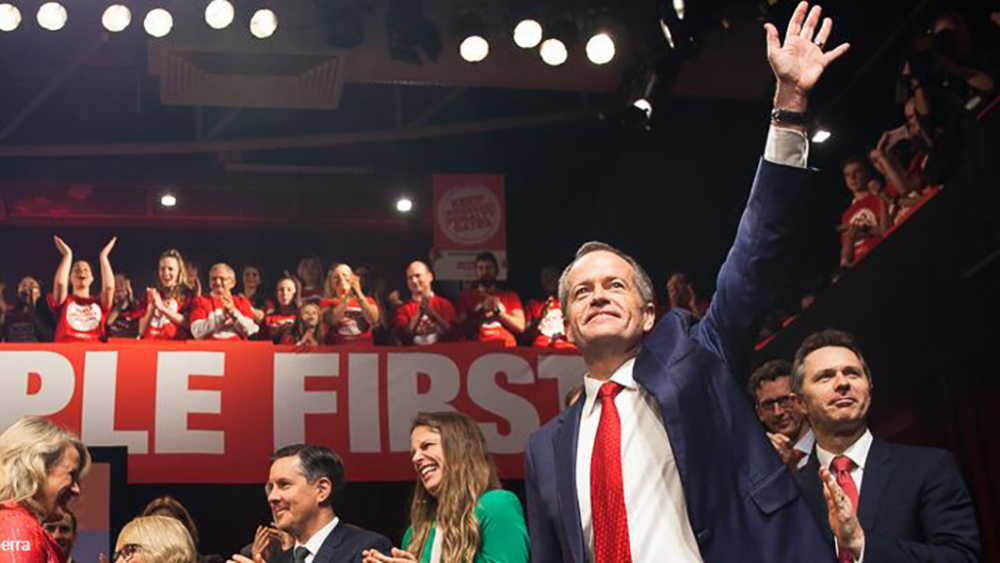Labor’s report into its surprise 2019 Federal Election loss, by Craig Emerson and Jay Weatherill, has a good deal to say about Christians.
From the executive summary – why “Labor lost in 500 words”: “On the whole, people of faith did not desert Labor, but Labor lost some support among Christian voters – particularly devout, first-generation migrant Christians. Other religious denominations did not swing decisively one way or the other.”
“Labor as a whole did not project an image that was appealing to devout Christians.”
And from the report’s findings on how Labor might win next time – Recommendation 6: “Without compromising existing support, Labor should broaden its support base by improving its standing with economically insecure, low-income working families, groups within the Christian community and Australians living in regional and rural Australia.”
Scott Morrison features strongly in Labor’s analysis of Christian voters who swung away from the party. There is a hint that “devout Christians” may be hard to regain for Labor.
“Internal polling confirms when Scott Morrison became Prime Minister in August 2018, he was not well known by voters. He set about defining himself, at first, as a daggy, baseball cap-wearing dad, but then, as the election campaign itself unfolded, as a devout Christian.”
“Most conspicuously, Morrison was filmed praying, arms aloft, in his local church on Easter Sunday. These images were a prominent feature of the remainder of the campaign, with Morrison speaking openly about his Christian faith.
“In contrast, Labor as a whole did not project an image that was appealing to devout Christians. Announcing Labor’s sexual and reproductive health strategy 10 weeks from the election enabled conservative groups to target Christian voters in marginal electorates around the country, and in traditionally safe Labor seats in western Sydney.
“The Party would be wise to reconnect with people of faith on social justice issues and emphasise its historic links with mainstream churches. Whether Labor’s campaign for marriage equality affected its standing with people of faith is a moot question, but it is noteworthy that even after an overwhelming “Yes” vote, Morrison abstained in the parliamentary vote on the enabling legislation. In pointing this out, we are not suggesting Labor should have positioned itself as opposing marriage equality.
The report contains statistical research identifying Christians among groups which significantly impacted the Labor vote.
“More generally, the rise of the Christian Right within the Liberal Party and Morrison’s elevation to the Liberal leadership will ensure the Liberals will continue to connect with devout Christians.”
The comments on marriage equality will be disputed by more conservative Christian groups, such as the Australian Christian Lobby and Family Voice Australia which conducted targeted campaigns in seats.
The report contains statistical research identifying Christians among groups which significantly impacted the Labor vote.
“In the weeks and months following the election, several published and unpublished studies have sought to understand the demographic traits associated with the swings to and from the major parties. Nick Evershed (2019) found electorates with a high proportion of high-income, well-educated or recent migrants swung to the ALP, while those with a high unemployment rate or containing coal mines swung against the ALP.”
“Ben Phillips (2019) came to a similar conclusion, finding electorates with a higher proportion of people with university degrees or earning above $100,000 per annum swung to the ALP, while areas with a high proportion of Christians swung away from the ALP.
“Phillips concluded the Queensland-only swing was not significant when controlling for various demographic indicators.
“An ALP internal statistical analysis of categories of voters who swung from and to Labor determined voting patterns by running various regression models designed to isolate the effects of one variable while holding all others constant. The variables included were: age, weekly household income, educational attainment, unemployment rate, net rental loss, franking credits, place of ancestry and religious identification.”
Using the smallest ares identified by the ABS, the report finds those areas with a high proportion of the following groups were associated with a swing against Labor:
• Voters aged 25-34 years living in outer-urban and regional areas;
• Christians;
• Coal mining communities;
• Chinese Australians; and
• Queenslanders.
“There is overlap between some of these groups, such as Christians living in Queensland and mine workers aged 25-34 years. However, each characteristic was an independently statistically significant contributor to the anti-Labor swing.”
“When all other variables are controlled for, voters in the 25-34 year age group swung strongly against Labor, with an estimated swing of four per cent.”
Pray
Some prayer points to help
Pray for the leaders of the Labor Party, and especially for Christians within the party, as the ALP reflects on the Christian vote and their electoral loss.




